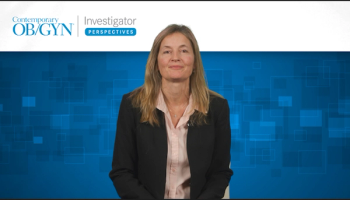
Fiona C. Baker, PhD, discusses the interconnected nature of VMS and sleep disturbances, stressing why treating both together—and achieving rapid symptom relief—is key for patient satisfaction.

Fiona C. Baker, PhD, discusses the interconnected nature of VMS and sleep disturbances, stressing why treating both together—and achieving rapid symptom relief—is key for patient satisfaction.

Edward Hook, MD, discusses the FDA approval of oral zoliflodacin and its role in expanding treatment options for uncomplicated gonorrhea amid rising resistance.
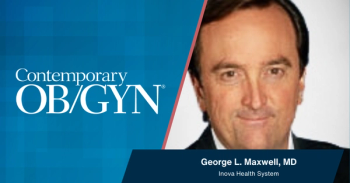
George L. Maxwell, MD, outlines the SUNFLOWER phase 3 trial assessing Mirena vs oral progestin for treating nonatypical endometrial hyperplasia.

Melanie Barrett, MD, highlights brexanolone’s ability to quickly and durably reduce depressive and anxiety symptoms in postpartum women.
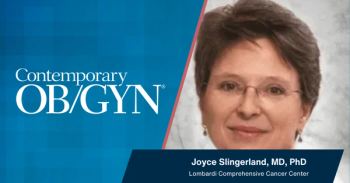
New research shows that obesity-related increases in estrone after menopause may drive inflammation and tumor growth.
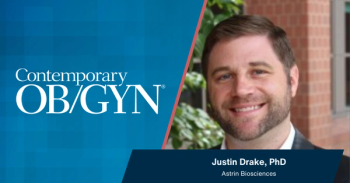
A protein-based, liquid biopsy screening test demonstrated greater than 90% sensitivity and specificity for early breast cancer detection.

The experts provide actionable guidance on implementing NK-targeted agents, follow-up protocols, and patient education.

Exploration of NK1 receptor roles in other disorders, such as pruritus, bladder dysfunction, and mood regulation, and their implications for menopause care.

Breast arterial calcification on mammography is associated with higher cardiovascular risk and mortality, suggesting the need for risk assessment.

New neurokinin receptor antagonists such as fezolinetant and elinzanetant are reshaping treatment options for menopausal hot flashes.
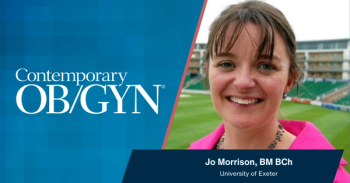
New evidence integrating RCTs and global population studies confirms that early human papillomavirus vaccination directly prevents cervical cancer.

Fiona C. Baker, PhD, compares elinzanetant with current therapeutic options, noting how its profile aligns with the needs of patients experiencing both VMS and sleep disturbances.

Fiona C. Baker, PhD, emphasizes the importance of patient-reported outcomes in assessing elinzanetant’s overall benefit, including insights on symptom recurrence and quality-of-life improvements.

Laura Jelliffe-Pawlowski, PhD, MS, explains how the PTB-ARIx tool leverages modifiable clinical factors to strengthen patient-provider communication.

In phase 2 trials, cendifensine significantly reduced the frequency and severity of menopausal hot flashes and may offer broader symptom relief benefits.

David Lissauer, PhD, discusses how the APT-Sepsis program delivered a sustained 32% reduction in severe maternal infection outcomes

Camille Powe, MD, discusses how discontinuing GLP-1 receptor agonists before or during pregnancy may increase gestational weight gain and metabolic risks.

Discussion covers hepatic enzyme monitoring, oncologic safety considerations, and real-world precautions for NK antagonist use.

The panel underscores how quick onset of benefit improves adherence and patient satisfaction in clinical practice.

Fiona C. Baker, PhD, reviews NIRVANA’s findings showing early onset of relief for both VMS and sleep disturbances, supported by patient-reported improvements in sleep quality, duration, and nighttime awakenings.

Fiona C. Baker, PhD, outlines the NIRVANA study’s design and goals, noting its focus on evaluating elinzanetant’s impact on vasomotor symptoms and sleep-related outcomes.

Ayesha Dholakia, MD, highlights rising pregnancy-related homicides, driven largely by firearms.



Data shows widening disparities in cesarean births among Black birthing people and indicates a need for patient-centered care.

Embryologist shortages and emerging AI technologies are transforming IVF laboratories, driving the need for integrated systems and standardized workflows.

Emerging AI tools are improving efficiency and precision in IVF labs, but high costs and training limitations still prevent them from replacing manual expertise.
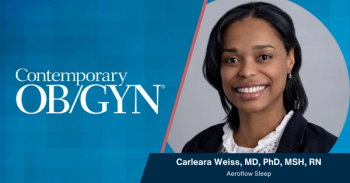
Sleep specialist Carleara Weiss, MD, PhD, MSH, RN, outlines the hormonal, physiological, and educational factors affecting sleep in menopausal women

FemBloc, a transcervical, incision-free method of permanent birth control, is advancing through its pivotal trial after strong early safety data.

Review of OASIS-1 through OASIS-4 trial results demonstrating consistent improvements in VMS frequency, severity, and sleep quality.